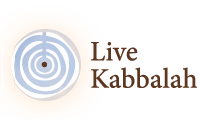The Parasha of Mishpatim seals the days of “Shovavim” (initials of the first six portions of the Book of Exodus, during a leap year this period is extended to eight weeks) that enabled us to experience our own personal exodus from slavery to freedom, correcting things we’ve damaged with our “Shovavim” (mischievous) and irresponsible actions that hurt our universe, ourselves and our souls.
This parasha is very different from the other five we’ve read on the previous weeks, since it is not telling us the story of the Exodus but describes, instead, the different laws that constitute the Biblical Law, such as the four main principles, of the Jewish Tort law, the Hebrew Slave Law and many others. The Zohar reveals that the main purpose of our portion is to discover the secrets of reincarnation and the regularity our universe work by – cause and effect.
The text of this Parashah is an extention of the previous one, the details of the Universal Law that has been given on Mt. Sinai.
A question automatically raised is about the connection between reincarnation, Mishpatim and Judaism?!
The basic concept of Abraham’s Monotheism is the unity of God. Meaning, the Creator is one, infinite and never changes. Since His essence is infinitely good, than, the source of all suffering in this universe is not the Creator but disconnecting from Him and His endless bliss. Hence, if one had passed away miserable, then, God’s intentions haven’t been fulfilled (sharing bliss, love and pleasure with His creatures), therefore, this person must return in order to continue from the place he quit, until he can receive God’s goodness by his actions of spiritual growth. According to the Zohar, the laws described in Mishpatim are cosmic laws. And when it is said “an eye for an eye” it means that whatever we cause our fellowman will come back to us unless we will fix what wrong doings.
The rules of slavery that are mentioned in this portion explained by the Zohar as slavery of the soul to the body’s urges. Each of the four main principles of the Hebrew Tort Law represents a dark aspect of our personality that we need to choose whether we fight it or become its victim.
The Jewish law, as opposed to the law we know today in a modern society, understood that if one has harmed society in any way it is because he was imbalanced, the role of court was to find which actions will balance that disturbed soul. This is the essence of our portion – balances.
The greatness of the laws mentioned in Mishpatim is in the approach. Instead of claiming that need for the laws is social, having a concept that the spiritual-universal laws have a purpose to connect us to the Creator’s Llight. That means that whenever we harm our fellow man we move farther away from the abundance of The Creator. The void that will take the place of the Light will be always felt as misery and pain which eventually we will re-experienced since the universe has its own checks and balances, the rules of cause and effect.
We can see that through generations this awareness influenced us more and more. This era, we are more aware and more sensitive to our responsibility to society and to the environment, but still there is a long way to go. However, the more we will know to connect to the Creator’s Light and to surround ourselves with a spiritual environment that will remind and demand of us to report for our actions, it will be easier to go on the right path and live a life that is more fulfilling and complete.
For additional study on Yitro and other portions enter Live Kabbalah University
2022
2021
2020
2019
2018
